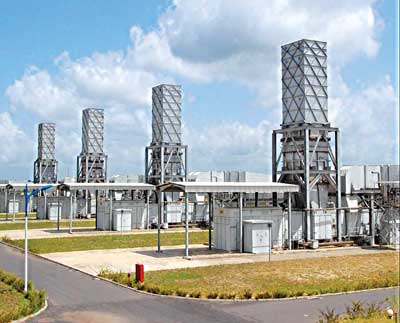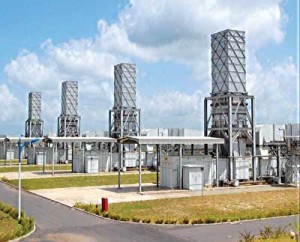Hopes of having a stable power supply in the country may have become elusive as more power stations and sub-units remain inactive, bringing the generation level down to 4245 Mega Watts (MW).
The nation recorded the peak generation of 5074MW on the 2nd of February, but the daily operational report, including the national statistics on generation profile exclusively obtained by The Guardian yesterday indicated that about 20 power stations are operational out of the 25 power facilities in the country.
The Olorunsogo power station operated under the National Independent Power Projects (NIPP) was also reportedly shut down due to gas constraint and maintenance programme, reducing power generation by 600MW.
Besides, some of the 20 operational plants also have some units shut due to gas limitations, water shortage, transmission constraints and maintenance. This has however brought the unutilised generation capability to 2146.5MW.
However, the peak national demand, according to the report stood at 14,630MW.
No fewer than seven power plants were affected by gas constraints. These are Olorunshogo NIPP GT1-4 and ST2 units (600MW); Sapele NIPP GT 3&4 (225MW); Omotosho GT2-4 and 6 (152MW); Geregu NIPP GT21 and 23 (290MW); Delta GT9, 10, 11, 18 and 19 (260MW); Olorunsogo GT2-4 and 8 units (152MW); and Ihovbor GT4 (112.5MW).
It noted that “it is envisaged that with improved plant availability and relief from existing power system network related constraints, additional 1637.17 million standard cubic feet of gas (equivalent to 6139.4MW) will bé required when all thermal units are on bar,”
One power plant is impacted by water management – Jebba 2G2 (85MW), while two plants are affected by transmission line constraints, these are Odukpani GT5 (120MW) and AfamV1 GT11 (150MW).
As at yesterday, five out of six units in Egbin power plant were on stream, while unit ST1was out due to generator circuit breaker trouble.
Meanwhile, the Consumer Rights Advancement Organisation (CRADO) said it is “highly unlawful and a flagrant abuse of consumer rights, for electricity consumers to pay the new tariff before getting the meters,”
President, CRADO, Adeolu Ogunbanjo, in a statement made available to The Guardian, said: “Why should electricity tariff increase when the extant law for such increment was not followed in consonance with section 76 of the Power Sector Reform Act, 2005.








